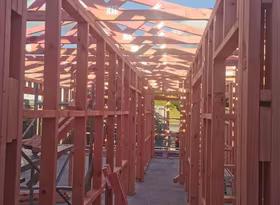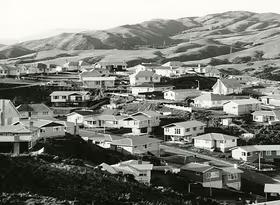Housing – should we settle for less?
Kiwis’ desire to have our own piece of land is a key part of our culture. It perhaps has its roots in the pioneering British immigrants, who left the UK to escape a society where land ownership was concentrated among a wealthy few. But the unaffordability of Auckland housing means that the homeownership dream is becoming increasingly difficult to achieve.
Auckland faces a choice about its future urban development – grow out, or grow up. Local government policy suggests a preference towards the latter. The draft Unitary Plan will open up a considerable amount of area for more intensive housing.
In a recent piece of research, I asserted that Kiwis’ land ownership aspirations are not realistically aligned with our actual incomes and wealth positions. Put simply, maybe we are too poor to afford land.
People opposed to tight zoning regulations argue that land prices should be lowered via less official “rationing” of land. Planning advocates counter this argument with their goal of avoiding urban sprawl encroaching on productive land. Urban sprawl gets a bad rap in Auckland because infrastructure services have historically failed to keep pace with increasing demand, thereby encouraging policy down the densification route.
How can we convince people to give up their dream of a backyard? It’s already happening. High property prices in Auckland are encouraging buyers to settle for a townhouse or apartment instead. Many then find that the reality of more intensive living is not as bad as they feared.
Existing landowners also need to accept densification. Having ten townhouses built next door, replacing a single house, is not that appealing. But money talks. If you don’t like the changing neighbourhood, sell your villa, presumably at a high price, and move somewhere with a leafier outlook.
Sales data currently shows surging demand for housing in Northland, Waikato, and the Bay of Plenty, as some people leave Auckland for areas with cheaper housing and a more relaxed lifestyle. As long as people have skills that are transferable, these spill-over effects will continue for those who want to own more land than they can realistically afford in Auckland.

















